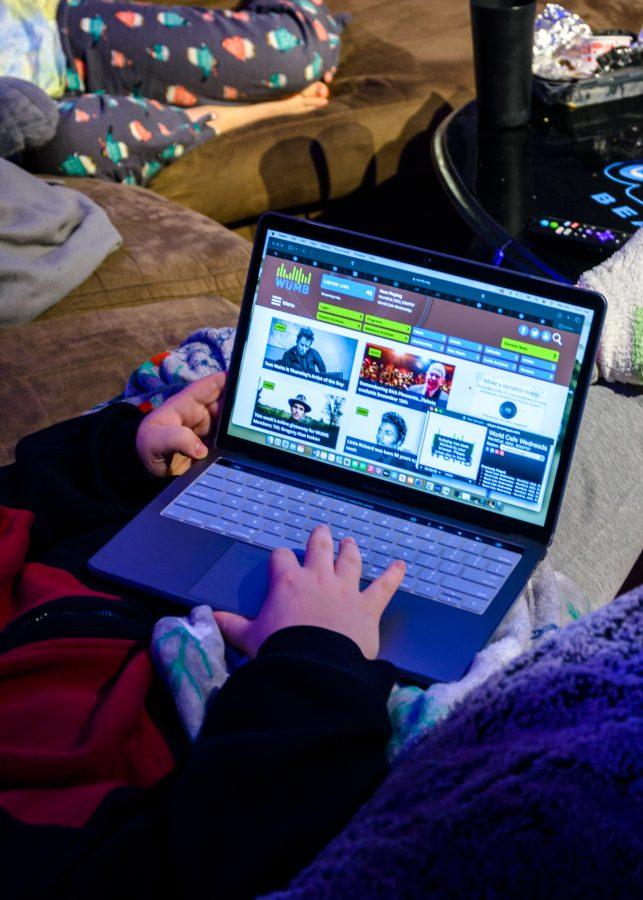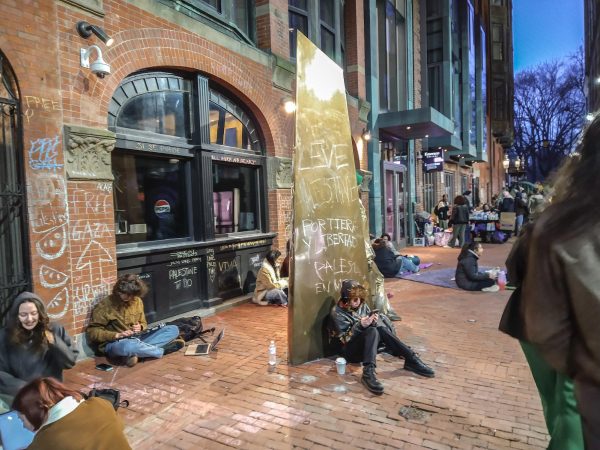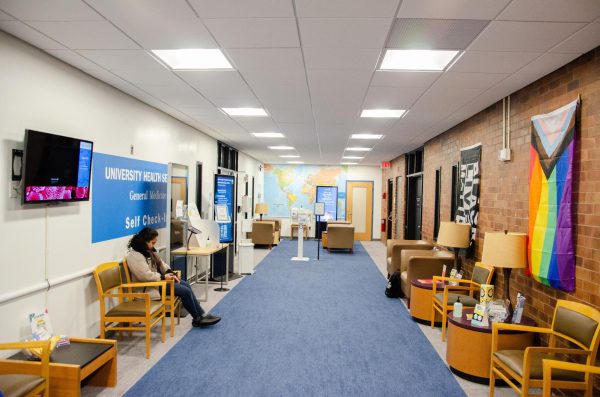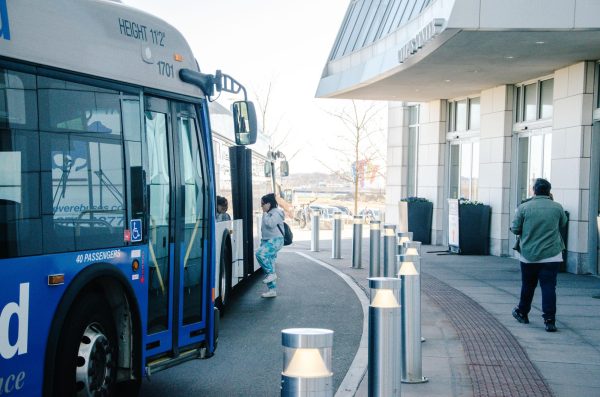WUMB is missing a key part of UMass Boston
A student streams music from “WUMB.org”(91.9FM) on their computer. Photo by Olivia Reid / Mass Media Staff
December 7, 2022
If I’m going to be completely honest, I didn’t even know UMass Boston had a radio station until our opinions editor, James Cerone, brought it up in an article, and I’m sure many students feel the same way. I guess some could call WUMB UMass Boston’s best kept secret, but I think there are plenty of other things around campus that would be deserving of that title.
That isn’t to say I’m not involved on campus—quite the opposite. Since my freshman year here at UMass Boston, I have found places to get involved all around campus, whether that was here at The Mass Media, in my classes, or with CLA First! The problem lies in the fact that WUMB resides in the depths of Healey, completely cut off from the rest of university.
Because WUMB is in the underbelly of the Healey Library and completely cut off from the rest of the UMass Boston ecosystem, their music taste seems to be stuck in the past. I won’t lie, I love older music as much as the next person who spent most of their childhood with their grandparents, but it’s a very specific style. If you aren’t a fan of singer-songwriter, blues, Celtic, Americana, bluegrass or a program dedicated entirely to the Beatles, you might want to try a different station.
When talking about this article with James, we both came up with a handful of points about the station. For one, if you take a look at the staff listing, it’s…well, it’s pretty white. And they’re all relatively middle aged. This isn’t me dragging the staff, either, since James has told me they’re all very nice people, but it’s still worth noting.
Some may say that since WUMB is donor funded, these donors should get to choose what they play, as they’re the ones paying for the music. In addition, some may say that young people don’t listen to the radio like they do Spotify or Apple Music, so having a few programs that were student-based would be fruitless. I agree, but I would also consider this: having student programs may bring in new listeners, and therefore, new donors, to the station.
While students may not be able to spare a few dollars a month to donate and fund their new favorite radio host, family members may be willing to in order to support their favorite Beacon. Student radio can be a great outlet for communication and music majors to get a hands-on experience, and looking at other schools—Boston area and UMass schools alike—this could not be more apparent (UMass Lowell even has a cat on their staff!).
WUMB claims that they are “dedicated to produce, acquire, and disseminate high quality, diverse and valued public service radio programming to significant audiences” (1), but their staff and music choices do not reflect this, and they are not catering to any significant audiences in the Boston public. This is not to say I want them to change all of their programs for the sake of the UMass Boston audience, but if they want to use our campus to record, students should be able to be involved a bit more.
That’s another thing. WUMB is not exactly the radio station of UMass Boston; they’re licensed out to the University of Massachusetts and set up recording on campus. (1) So, again, they could claim they don’t need to produce anything besides what they’re interested in—especially not things that most of the student population may not find entertaining—because they’re technically not affiliated with UMass Boston. But they use our name, and our facilities, so why not use our students as more than interns?
UMass Boston is the only public university in Boston. We also have a large population of first generation students with stories to share and unique histories. Like The Mass Media and other student newspapers, student radio can give voices to the student population in a way most other outlets cannot.
With the popularity of college radio stations like WZBC for Boston College, WSFR for Suffolk University, WJUL for UMass Lowell and WMUA for UMass Amherst, UMass Boston and WUMB should be able to join these stations.
The solution isn’t as simple as saying that WUMB should turn to solely student media, or to get off campus and change their name. There are some listeners who listen to WUMB for their current programming, and they would not want to be shut out from their listening experience due to an overhaul. Likewise, simply telling the current station to leave and change their name so UMass Boston students can use the space is neither practical nor logical.
What is there to do, then? Not to sound like another writer for this section, but getting involved and making student voices heard may be able to make a change. WUMB could be the voice of the students, and played throughout campus, but that can’t be done without student interest and engagement. Make voices heard—on the air and off.

























































